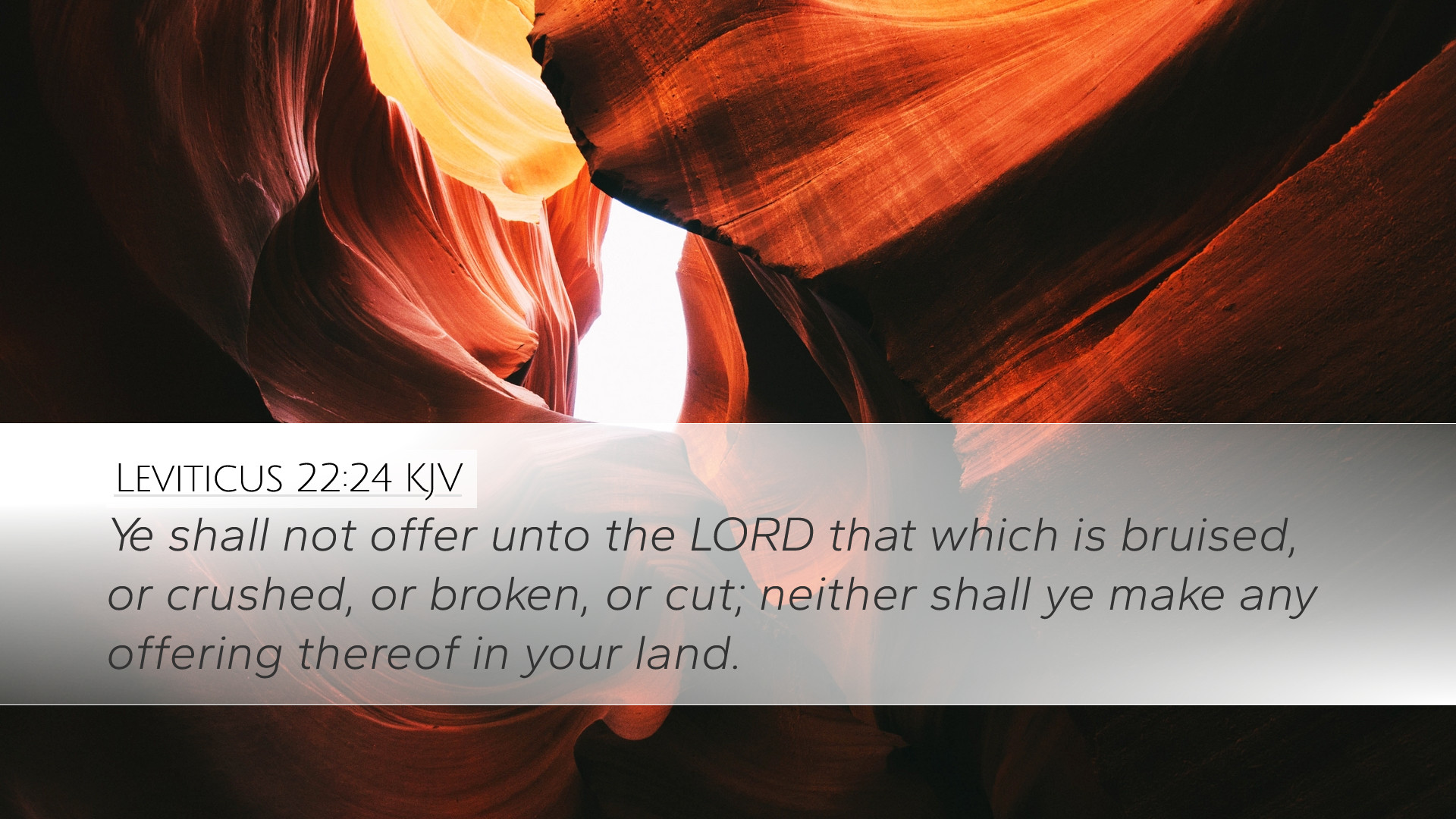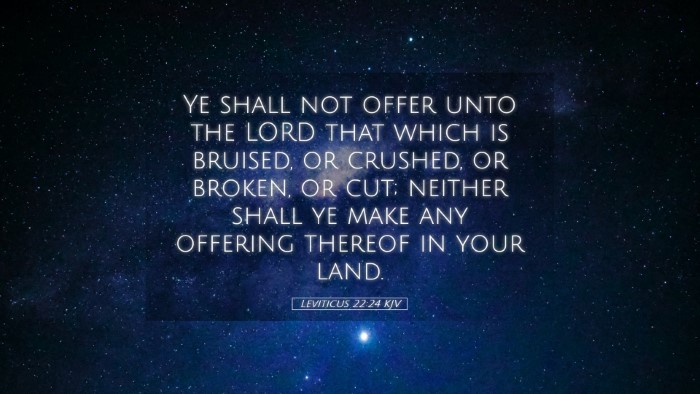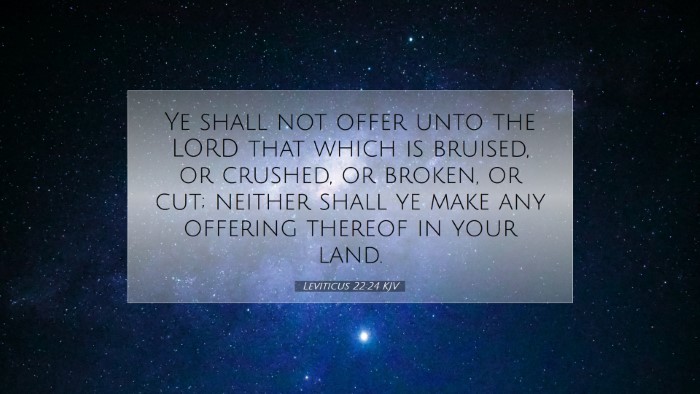Insights from Public Domain Commentaries
Matthew Henry's Commentary
Matthew Henry emphasizes the significance of offering unblemished sacrifices. He notes that God requires perfection in what is offered to Him, reflective of His own holiness. The underlying principle is that the quality of the offering reflects the worshipper's reverence for God.
Henry explains that these laws serve both to instruct the people in the necessity of presenting their best to God and to foreshadow the greater sacrifice of Christ, who is described as the perfect Lamb of God. In this light, the prohibitions serve as a precursor to the New Testament understanding of sacrifice.
Albert Barnes' Notes
Albert Barnes elaborates on the specific prohibitions against offering animals that are bruised, crushed, torn, or cut. He posits that such conditions reflect a disregard for the sacredness of sacrificial acts. Barnes makes it clear that these offerings are not merely physical instances but symbolize the attitude of the heart toward God.
Furthermore, Barnes connects the necessity of perfect offerings to the character of God, stating that it is fitting for Him to receive only the best from those who seek to worship Him. Barnes also notes the broader implications of this verse for contemporary believers, urging them to consider the quality of their own offerings—be they material, spiritual, or in lifestyle.
Adam Clarke's Commentary
Adam Clarke highlights the rationale behind these specific prohibitions, suggesting that the Israelites were being taught to consider the value and purity of their offerings. Clarke asserts that the integrity of the offering was fundamental in maintaining a proper relationship with God. He encourages readers to reflect on personal standards and the importance of making the right choices in worship and service to God.
Additionally, Clarke comments on the broader theological implications, asserting that these laws establish a pattern of holiness that should resonate in the personal lives of believers. Clarke implies that any offering made to God should symbolize an unyielding commitment to holiness and righteousness.
Conclusion
In summary, Leviticus 22:24 serves as an essential teaching on the nature of worship and the standards set by God for offerings. Through insights from Matthew Henry, Albert Barnes, and Adam Clarke, it becomes clear that the physical act of offering is intertwined with spiritual attitudes and motivations.
This verse challenges contemporary believers to assess the quality and sincerity of their worship, aligning it with the high standards of holiness and devotion reflective of God’s own character.


